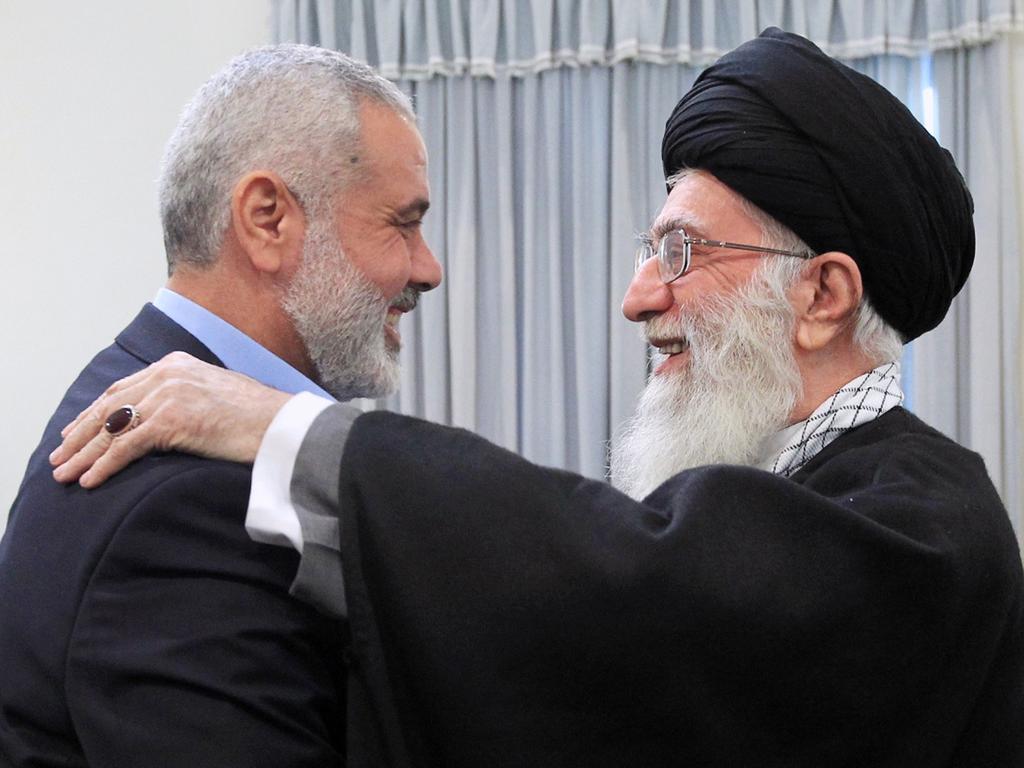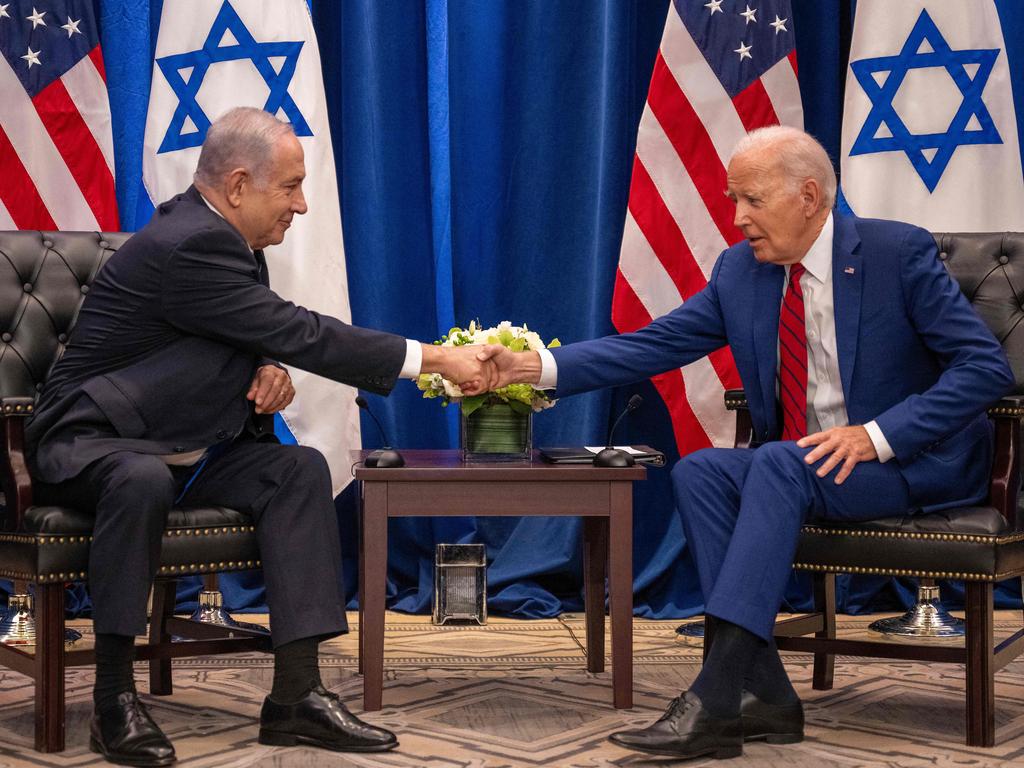Iran’s hand is clear in the carnage wrought by Hamas, but Netanyahu must win big or he will fall


Both of these non-state actors have accumulated military arsenals that are larger and more lethal than many national armies.
We just don’t know yet the exact genesis of these attacks but we do know that Iran has supplied the hardware and publicly rejoiced at the savage, barbaric murders of innocent Israeli civilians.
Anthony Albanese and Foreign Minister Penny Wong were right to unequivocally condemn the Hamas attacks and to stress Israel’s right to self-defence. Opposition leaders made similar statements.
Both Hamas and Hezbollah are designated as terrorist organisations by the Australian government.
At the end of her statement, Wong called for “restraint”.
This seems peculiar. As much as any Western army, Israel avoids civilian casualties where it can.
It doesn’t attack civilians intentionally. But if it does not respond with decisive force to these terrorist murders, it invites more of them in the future, on a scale and with a savagery that constitute an existential threat to Israel itself.
The call for restraint, almost a Pavlovian response for every foreign policy professional in every conflict, seems to imply a degree of moral equivalence among the combatants.
There is no equivalence here. Israel, the only democracy in the Middle East, is a friend and ally of Australia. Hamas and Hezbollah are terrorist organisations.
The Iranians are delighted at the timing of the Hamas attacks.
Not only do they celebrate and commemorate the 50th anniversary of the Yom Kippur War, in which Egypt and Syria combined to launch a surprise attack on Israel, these attacks are, more importantly, designed to derail the ongoing rapprochement between Israel and Saudi Arabia.
Many of Israel’s neighbours are deeply scared of Iran and can also see the wretched, sterile futility of policies designed to isolate Israel.

So there has been, under the Abraham accords, a historic process of reconciliation between Israel and a number of its Gulf and North African neighbours.
The extremist Hamas leadership, in perfect alignment with the Iranian government, will do everything it can to throttle, and if possible reverse, this process.
Israeli Prime Minister Benjamin Netanyahu has warned that there will now proceed a long and bitter war, and he is surely speaking the truth.
Israel’s internal polarisations, which have been so nasty in the past few years, have played their part in two ways.
They have encouraged Israel’s neighbours to think that this is a propitious time to attack.
And they have distracted Israel itself from the ever urgent national security tasks it needs to undertake every day in order to provide basic safety for its nation.
Netanyahu is rightly trying to put together a government of national unity. These sorts of government are a sign of dysfunctionality in normal times of peace, a sign that normal politics is not working.
In a time of war, a national security government is absolutely right.
Almost every able-bodied man is now being called up inside Israel.
One line of analysis has it that Hamas wants a prolonged and costly Israeli ground engagement in the south. When the Israeli Defence Force is maximally engaged in the south, Hezbollah, under this scenario, with its 150,000 rockets and tens of thousands of fanatical fighters, would attack from the north, in the hope it could overwhelm Israel.
This has been both an intelligence failure and a military failure by Israel, and as Prime Minister, Netanyahu must take ultimate responsibility for this.
Indeed, national security has always been his strongest suit.
Netanyahu’s only chance of survival now is to win a massive military victory. This is also necessary for Israel’s survival.
Gruesome, distressing, terrible as the scenes so far have been, the prospect for even worse in coming weeks and months is strong.






The hand of Iran is evident in this barbarism in southern Israel. Iran is the chief backer of both Hamas in the Gaza Strip and Hezbollah in southern Lebanon.